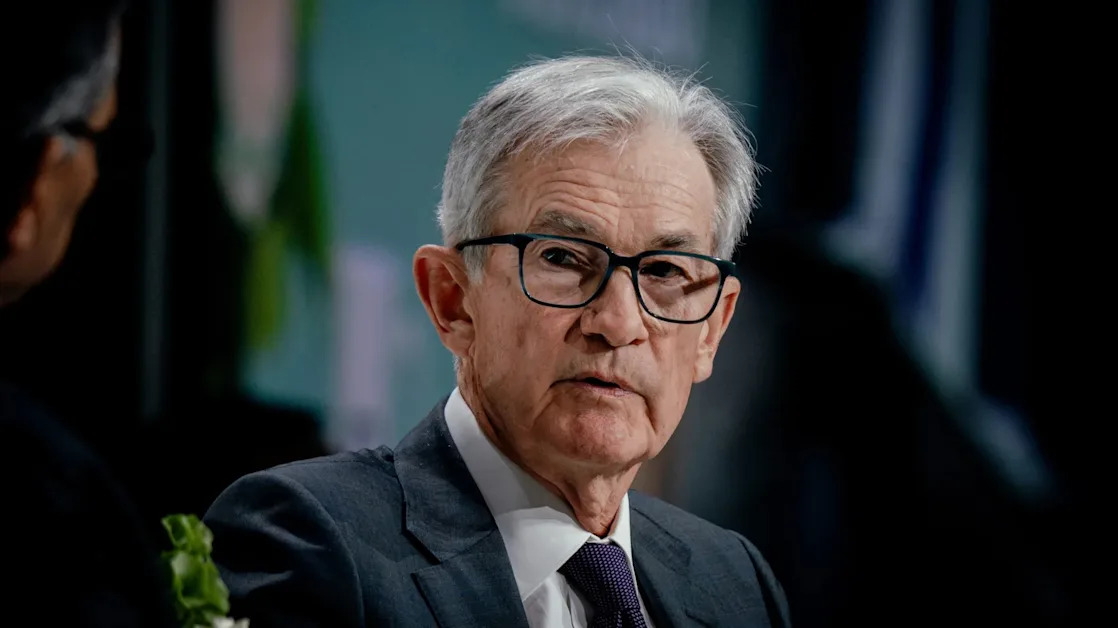
Fed Chair Powell warns of tariff turmoil as big company stocks struggle
Good morning. As tariff uncertainty continues, the U.S. Federal Reserve is growing more concerned.
“The level of tariff increases announced so far is significantly larger than anticipated, and the same is likely to be true of the economic effects, which will include higher inflation and slower growth,” U.S. Federal Reserve chair Jerome Powell said on Wednesday during a speech at the Economic Club of Chicago, Fortune ’s Paolo Confino reports .
Tariffs also weigh heavily on the expectations that companies and consumers have about the economy. According to surveys of households and businesses, there’s a “sharp decline in sentiment and elevated uncertainty” largely due to concerns about trade policy, Powell said. The economy now faces “heightened downside risks,” he said.
In its assessments of the economy, the Fed monitors long-term inflation expectations. “If those rise, it means business leaders, investors, and the public at large see inflation as a chronic problem that won’t go away,” Confino writes. “When that happens, they’re much more likely to cut back on spending, which only raises the likelihood of a recession. The latest consumer price index report from March measured inflation at 2.4%, slightly lower than expected. However, that read came before Trump implemented his tariff policy.”
Powell said the Fed is positioned to wait for further clarity before considering any adjustments to its rate stance. The market is currently pricing in between two and three rate cuts in 2025 starting in the second half of the year, Confino writes. You can read the complete report here .
Powell also acknowledges that the markets are struggling with uncertainty. Tariff concerns continue roiling the markets , leaving major companies in a state of heightened alert. To get a sense of which companies are getting hit hardest by tariff turmoil, Fortune parsed stock market data from Morningstar. The findings identify 14 Fortune 500 companies and show how their share prices performed since tariffs began to bite.
For example, between April 1 and 14, the stock price of VF Corporation ( No. 355 ) was hit particularly hard, declining 30%. The global apparel and footwear company is known for its portfolio of brands, including The North Face, Timberland, and Vans. VF has a strong reliance on China and Vietnam—both prime targets for Trump’s tariffs—for its suppliers .
Wayfair ( No. 346) , the online retailer of home goods, experienced a 15% drop. The company has higher exposure to Vietnam than some of its competitors. Shares of athletic apparel retailer Lululemon ( No. 411 ) fell 7%.